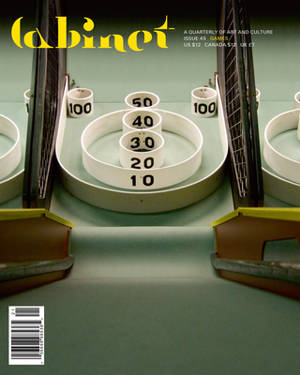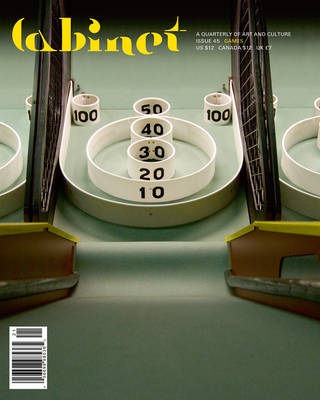
- Afhalen na 1 uur in een winkel met voorraad
- Gratis thuislevering in België vanaf € 30
- Ruim aanbod met 7 miljoen producten
- Afhalen na 1 uur in een winkel met voorraad
- Gratis thuislevering in België vanaf € 30
- Ruim aanbod met 7 miljoen producten
Zoeken
Omschrijving
In the nineteenth century, Marx rejected the notion of homo sapiens, offering instead homo faber to indicate how consciousness follows from the primary activity of making. Against this, a certain ludic tradition has imagined a homo ludens, humans defined through their relationship with games and play. Cabinet 45 features Joshua Glenn on H.G. Wells' "Floor Games"; D. Graham Burnett on games played by game theorists; Barbara Levine and Jessica Helfand on dexterity games; James Trainor on the lost world of "adventure" playgrounds; Dana Katz on Brian Eno and Peter Schmidt's "Oblique Strategies"; an interview with Bertell Ollman, inventor of the board game "Class Struggle"; and Jeff Dolven on poems as games. Elsewhere in the issue: Helen Larsson on the history of applause; Wayne Koestenbaum's legendary "Legend" column; Naomi Muller on eating the zoo animals in Berlin during World War II; Jeremy Crichton on "spite" houses; and much more.
Specificaties
Betrokkenen
- Auteur(s):
- Uitgeverij:
Inhoud
- Aantal bladzijden:
- 112
- Taal:
- Engels
- Reeks:
- Reeksnummer:
- nr. 45
Eigenschappen
- Productcode (EAN):
- 9781932698442
- Verschijningsdatum:
- 30/06/2012
- Uitvoering:
- Paperback
- Formaat:
- Trade paperback (VS)
- Afmetingen:
- 201 mm x 249 mm
- Gewicht:
- 435 g

Alleen bij Standaard Boekhandel
+ 29 punten op je klantenkaart van Standaard Boekhandel
Beoordelingen
We publiceren alleen reviews die voldoen aan de voorwaarden voor reviews. Bekijk onze voorwaarden voor reviews.











